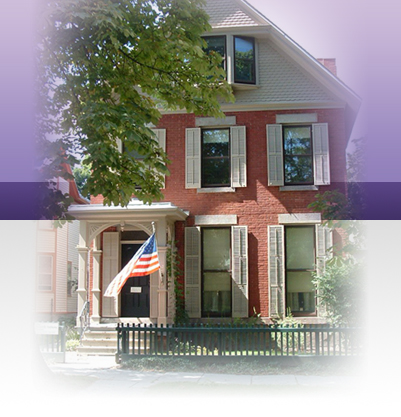Abolitionist
After they moved to Rochester in 1845 members of the Anthony family were active in the anti-slavery movement. Anti-slavery Quakers met at their farm almost every Sunday, where they were sometimes joined by Frederick Douglass and William Lloyd Garrison. Anthony's brothers Daniel and Merritt were anti-slavery activists in Kansas.
In 1856 Anthony became an agent for the American Anti-Slavery Society, arranging meetings, making speeches, putting up posters, and distributing leaflets. She encountered hostile mobs, armed threats, and things thrown at her. She was hung in effigy, and in Syracuse her image was dragged through the streets.
In 1863 Anthony and Stanton organized a Women's National Loyal League to support and petition for the Thirteenth Amendment outlawing slavery. They went on to campaign for Black and women's full citizenship, including the right to vote, in the Fourteenth and Fifteenth Amendments. They were bitterly disappointed and disillusioned when women were excluded. Anthony continued to campaign for equal rights for all American citizens, including ex- slaves, in her newspaper The Revolution, which she began publishing in Rochester in 1868. Anthony attacked lynchings and racial prejudice in the Rochester newspapers in the 1890s.
